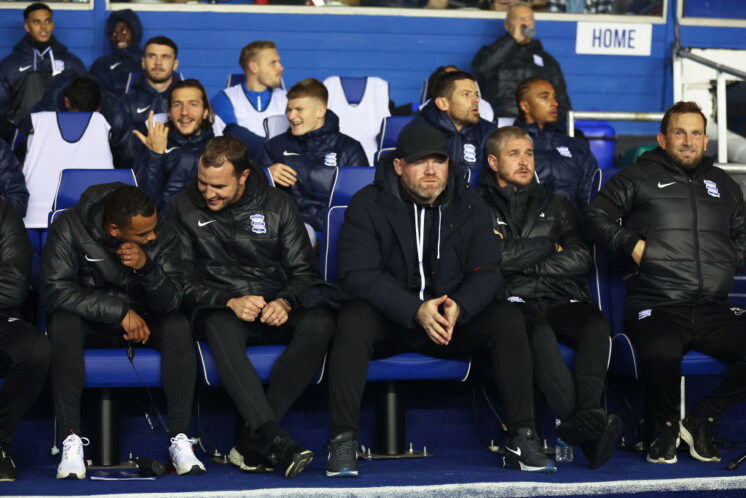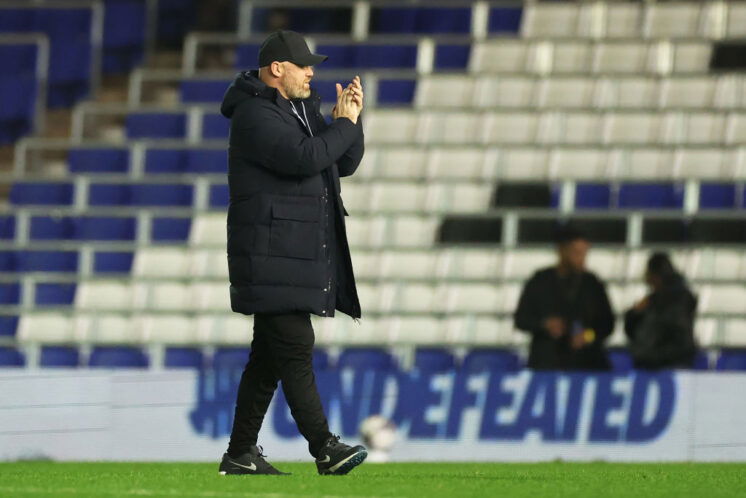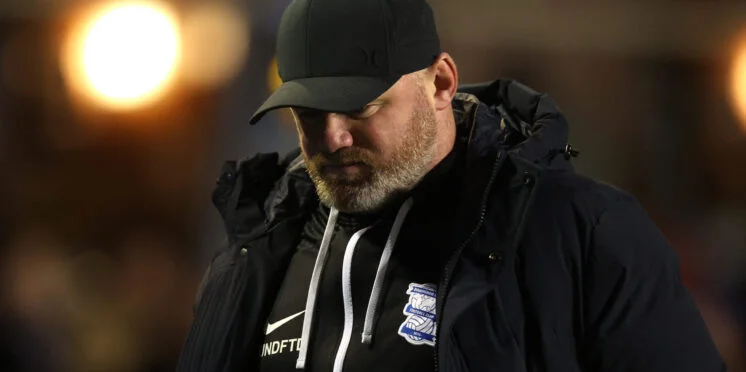Wayne Rooney’s appointment generated significant media attention, but it also sparked controversy. The decision to replace John Eustace, despite his successful efforts last season that led the team to a 6th-place finish in the Championship, raised eyebrows. Eustace’s departure came after an impressive local derby victory against WBA. The club brought in Rooney, a decorated former England striker, even though his managerial record showed a modest 27% win rate. This decision was made with the aim of improving the club’s brand image, focusing on playing attractive and attacking football, which CEO Garry Cook described as a “risk and reward” strategy.
Rooney’s appointment placed him under immediate pressure to deliver positive results and potentially surpass the 6th-place position achieved by John Eustace. The debut under Rooney’s leadership, however, began poorly with a 1-0 defeat to Middlesbrough, and the team appeared out of sync.
In the following home game against Hull, expectations were high for a positive outcome. Yet, the result was quite the opposite, with a 2-0 loss. Rooney’s tactical changes did not yield the desired results; the midfield seemed ineffective, goalkeeper Ruddy’s distribution was lacking, and the team’s confidence appeared shattered, particularly after the second goal. Players appeared confused and unsure of their roles, making it clear that the squad’s confidence had significantly diminished compared to the Eustace era.

The fans’ frustration was evident as they expressed their disappointment with boos throughout the match. The atmosphere turned toxic, and some even joined Hull fans in singing “Sacked in the Morning.” Rooney needed a positive result, but his second game was even worse than his debut, signaling the end of his honeymoon period at the club. Rooney’s family and board members were present at the game, which certainly wasn’t the Hollywood-Netflix-style script they had hoped for.
The fans’ comments reflected their anger and frustration over the club’s ambitious promises and style of play. It felt like one step forward and two steps back, reminiscent of the struggles faced during Gianfranco Zola’s tenure.

Rooney and his coaching staff appeared to introduce tactical changes too hastily. Eustace’s formation was working reasonably well, and the abrupt shift to a “no fear” 4-3-3 style with just a week of training for the squad was challenging. It’s questionable whether Rooney has the right players for his “Rooney Ball” style. While fans expected a shift in the style, they likely didn’t anticipate the change to occur so quickly.
Rooney seems to have realized the need for a more gradual transition, stating, “I want them to change from being on the back foot to being more front-footed. If they feel that they can’t do it, we can adapt.” He acknowledged the possibility of asking too much too soon and recognized his responsibility to find a balanced approach.
For Rooney to succeed, he and his coaching staff need to understand that sudden, drastic changes in playing style don’t guarantee success. Given the stability Eustace had provided, some continuity is necessary. Rooney may need to revert to the previously effective formation, gradually implement his style, and exercise patience. The first two games of the “Rooney Ball” era have shown that a rushed implementation of his plan has not paid off.
Fans are hopeful for Rooney’s success, and even Hull City’s head coach, Liam Rosenior, has defended Rooney, believing he can succeed if given the right amount of time. The phrase “if it ain’t broke, don’t fix it” seems apt in this context, and lessons need to be learned from these initial struggles as they prepare for the challenging match against Southampton.

